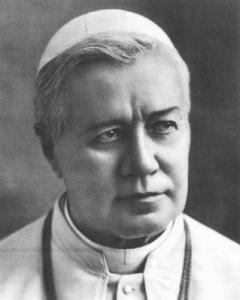Blog Archives
Ratko Mladic, Don Camillo And Catholic Sense
The capture of Ratko Mladic, the notorious bastard of the Bosnian War, once again reminded me of a similar Italian situation, how Italians dealt with it, and why.
The Italy of the post WW I years was extremely explosive, and during the “biennio rosso” (1919-1921) it seemed that an outright civil war was in the cards. As it is well-known, a de-facto alliance of liberals, landowners, industrialists, conservative Catholics and Fascists put an end to this danger.
When it was clear that the Fascists had got the upper hand, they had to deal with the opposition. But they weren’t Serbians, or Spanish commies. In the end, everyone wanted to live peacefully, and leave adversaries alone as much as this could be reasonably done. The most used device to “pacify” the country was typically Italian: castor oil.
In two words, a small troop of Fascist activist would present themselves to the home of the relevant chap (a socialist, or an anti-fascist liberal or Catholic) and invite him to drink the castor oil. The refusal to drink obviously meant open war, but the acceptance of the “medical aid”a sort of token: one would abstain from anti-fascist activity and would, henceforth, be left alone. No blood, no murders, no widows, no orphans. Not even physical violence. You can call this fascist oppression and I won’t say it was pleasant. But given the circumstances I call it absolutely genial, very Italian, and very Catholic.
This praxis, savagely criticised in the following decades, was in my eyes extremely civilised, and I don’t know any other country where such limitless hate was set aside in such a bloodless way. Humiliating as the drinking of the castor oil was, it was a humiliation meant to consolidate Fascism in power without tragedies, and keeping even one’s adversaries totally unscathed.
I must honestly say that, whilst the civil war phase at the end of WW II was much bloodier than the Fascists ever dreamt to be, most anti-Fascists were honest and decent enough to remember the wisdom of the treatment and, when their hour struck, caused many bottles of castor oil to go over the pharmacy counter and, from there, down different throats. Again, I see in this the way of a country where even the strongest hatred very rarely causes people to forget a sense of humanity and Christian piety; not even then, when those now in the commanding position wouldn’t even define themselves as Christians. Such is the power of an all-pervading Catholic attitude.
——————————————————————————————–
The most humorous way to describe in very visual terms the difference between the Serbian and the Italian attitude can be seen in this fragment of a Don Camillo/Peppone film, so popular at the time because so adherent to the Italian reality.
Unfortunately there are no subtitles, but the story is easily told.
1) An old fascist (the great Paolo Stoppa, dressed as a Redskin) has profited from the Carnival to come back to his old village; but he has been recognised from Peppone’s commies and is now very afraid something truly bad may happen to him. He takes refuge by Don Camillo.
2) Don Camillo reminds him that he would feel “safer” if it wasn’t for the castor oil the other had made him drink many yeasr before. The other has the usual excuses: come on, we were mere boys then…
3) Don Peppone, the commie mayor, intervenes after having gone in from the window. He carries a bottle of…. castor oil. Doctor’s orders, he says. “It will do you good”. An iron bar strenghtens the doctor’s advice considerably.
4) The Fascist chap makes a first attempt at escaping, but is stopped. He frees himself a second time, reaches for Don Camillo’s gun, threatens Peppone. “Don’t be stupid, it’s loaded”, says Don Camillo.
5) Now it’s iron bar against gun. Peppone must drink.
6) Triumphant, the fascist chap sends him away. “Now go and call your reds. Perhaps it will cost me my skin, but I won’t go to hell alone”.
7) Don Camillo smiles. He fills a glass. He remarks about how good the oil’s quality is. “You’ll like it”, he says. When the chap threatens him, he informs him that the gun is not loaded, and overcomes him with sheer physical strenght. “I’ll count up to three, then I’ll pulverise you by mere force of slaps”. The chap has no choice but to drink. He is then sent away with the advice of “dressing as a hare” before he is found by Peppone’s boys.
8) Everything seems fine, but Jesus now talks to Peppone: he has lied. “If I had told that the gun wasn’t loaded, Peppone would have massacred him”, tries Don Camillo. “You could have spoken when the redskin forced Peppone to drink the oil!”, says Jesus. “But then Peppone wouldn’t have drunk!”, answers the cheeky priest feigning indifference whilst lighting a cigar.
9) Jesus calls this “vengeance”, Camillo replies with “Justice”. When Jesus insists on him having a “profound sense of justice”, his words are clear: “justice demands that violence and lie be punished”. Camillo’s eyes fall on the castor oil bottle. “Ah, you understood me well!”, says Jesus.
10) At this point, resistance is futile. Camillo tries to cheat, but then fills the glass properly. Before he drinks, he movingly says: “in the end, my Lord, this will remind me of my youth”.
I hope that this little, delightful sketch has added some sun to your Sunday, and that it has explained to you the difference between mad fanaticism, and a Catholic approach to the enemy.
Mundabor





















You must be logged in to post a comment.